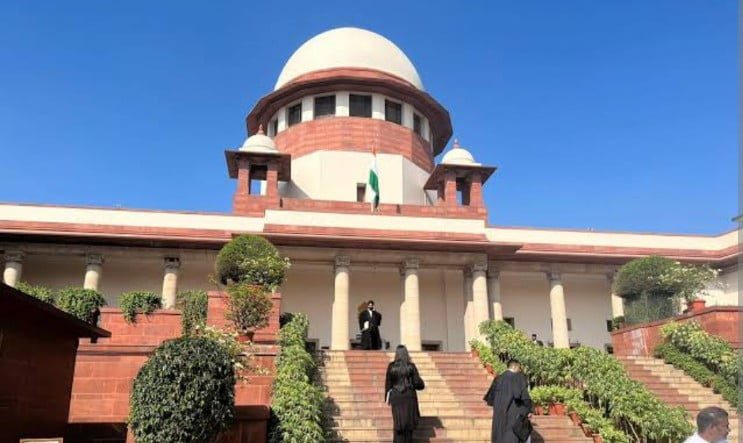In a recent development that has stirred political and social discourse, the Supreme Court of India dismissed a petition calling for the central government to expedite the socio-economic caste census. The court’s decision underscores the complex intersection of legal boundaries and governance responsibilities.
On September 2, 2024, the Bench, comprising Justices Hrishikesh Roy and SVN Bhatti, ruled against the plea filed by petitioner P. Prasad Naidu. The petitioner sought judicial intervention to direct the government to promptly conduct and complete the enumeration of caste data, crucial for policy-making and welfare programs targeting marginalized communities.
Governance vs. Judicial Intervention: Court’s Ruling
The Supreme Court’s refusal to entertain the plea hinges on the principle that matters of policy and governance fall outside the purview of judicial intervention. Justices Roy and Bhatti highlighted that the issues raised in the petition are inherently linked to policy decisions, which should be addressed within the legislative and administrative frameworks rather than through judicial means.
During the court proceedings, senior advocate Ravishankar Jandyala and advocate Sravan Kumar Karanam, representing the petitioner, argued that the caste census is integral for informed policymaking. They cited the Indra Sawhney judgment of 1992, which emphasized the periodic nature of such censuses. However, the court remained steadfast in its position, maintaining that it could not intervene in policy-related matters.
Delays and Data Gaps: The Petitioner’s Argument
The petition brought forth significant concerns about the delays in the Census-2021, initially set to commence in April 2019 but subsequently postponed due to the COVID-19 pandemic and other logistical issues. Naidu’s plea highlighted that the enumeration process remains incomplete, leading to substantial data gaps.
The last comprehensive census was conducted in 2011, and the absence of updated data has led to a void in socio-economic insights. The petition emphasized that the census serves not only as a population tracker but also as a vital tool for socio-economic data collection, which is critical for effective policy formulation, economic planning, and administrative purposes.
Socio-Economic and Caste Census: Importance and Challenges
The plea underlined the necessity of a socio-economic and caste census to identify disadvantaged groups, ensure equitable resource distribution, and monitor the implementation of targeted policies. Accurate and up-to-date data from such censuses is crucial for achieving social justice and meeting constitutional objectives.
The last caste-wise data was recorded in 1931, rendering it obsolete in the context of contemporary socio-economic conditions. The 2011 Socio-Economic and Caste Census (SECC) aimed to fill this gap by providing detailed socio-economic and caste-related information. However, concerns over data quality and classification challenges have hindered its effective use.
An expert group was formed to classify and categorize the SECC data, but the recommendations are yet to be released by the Union government, further complicating the situation.
Political and Social Reactions
The Supreme Court’s decision has sparked a broader debate on the role of judiciary in governance and the effectiveness of current census practices. Political leaders and social activists have voiced their opinions on the implications of the court’s ruling and the need for timely and accurate data collection.
Future Outlook and Implications
As India moves forward, the focus will likely remain on addressing the challenges of census data collection and ensuring that socio-economic surveys are conducted efficiently. The Supreme Court’s ruling highlights the need for a collaborative approach between the judiciary, government, and other stakeholders to address issues related to census and data collection.
In conclusion, while the Supreme Court has declined to intervene in the caste census matter, the discussion underscores the importance of addressing data gaps and ensuring that socio-economic surveys are carried out in a timely and effective manner. The implications of this decision will continue to resonate in the ongoing dialogue about governance, data collection, and policy-making in India.
Soumya Smruti Sahoo is a seasoned journalist with extensive experience in both international and Indian news writing. With a sharp analytical mind and a dedication to uncovering the truth, Soumya has built a reputation for delivering in-depth, well-researched articles that provide readers with a clear understanding of complex global and domestic issues. Her work reflects a deep commitment to journalistic integrity, making her a trusted source for accurate and insightful news coverage.



